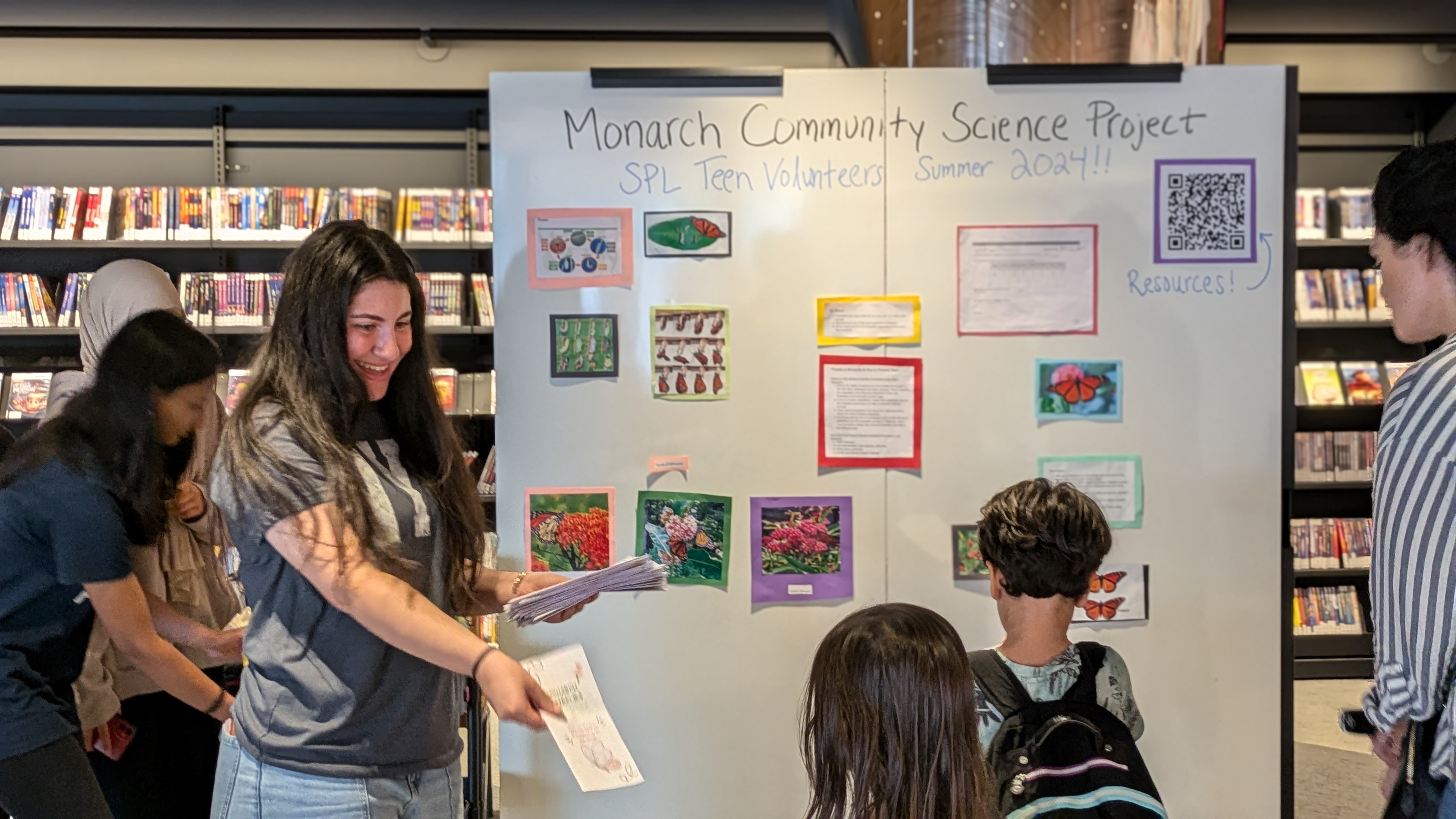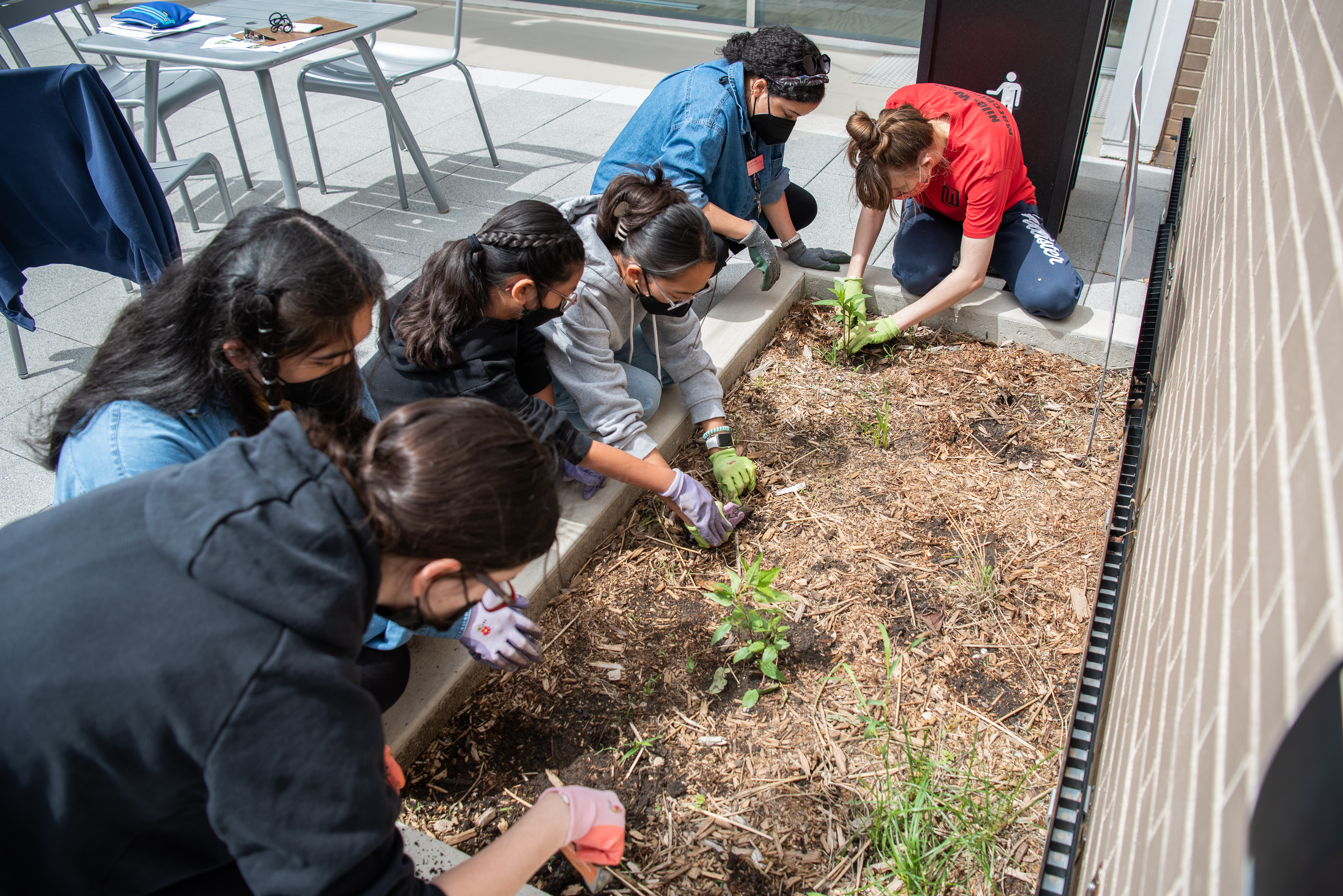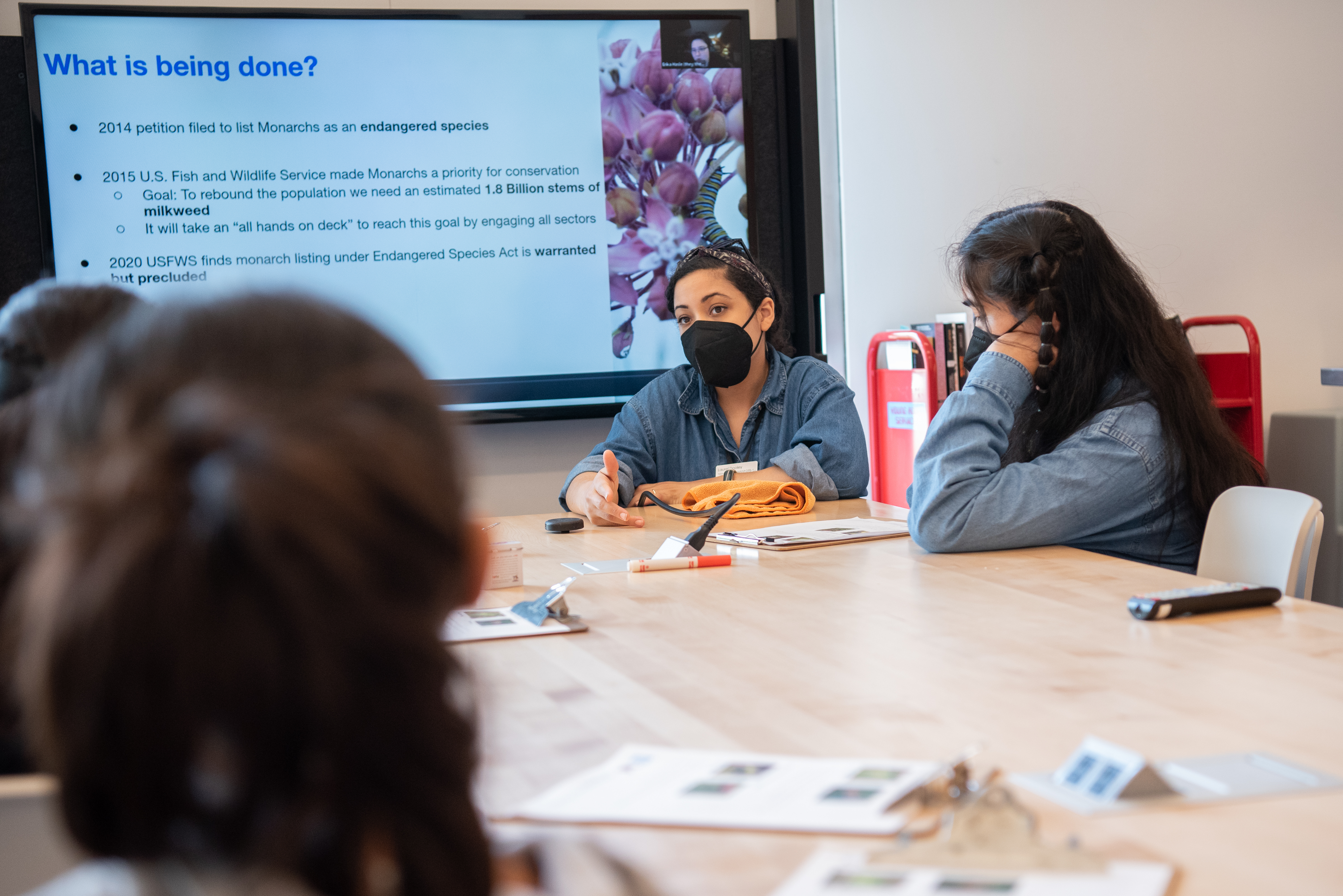The Monarch Butterfly Population Is Declining
September 23, 2024

By Tiba Al-Taweel, 2024 Teen Volunteer
Over the past two summers, I had the opportunity to volunteer with the Monarch Community Science group. It has been an incredible experience for me. I've learned a lot about monarch butterflies and their important role in the environment, and I am excited to share some of the things I learned with you.
While working with other teen volunteers, I learned that monarchs are not just butterflies, they are also vital pollinators. Sadly, their numbers are declining due to habitat loss and climate change. In 2023, I was amazed by the number of caterpillars I saw. The milkweed plants at Skokie Public Library had caterpillars feeding on the leaves. It was fascinating to see monarch butterflies thriving in our community.

However, this summer has been different. I’ve barely seen any monarchs. According to the Monarch Butterfly Fund, the monarch butterfly population has been declining for the past 30 years. Scientists track the size of the monarch population by looking at how much forest area is occupied by butterflies during their winter migration in Mexico. The winter of 2023-2024 was the second lowest ever recorded.
This year, we had an overflow of the aphid population, which resulted in something I hadn't seen before–winged aphids. Our research team found that when aphid populations get too dense on a plant, a genetic response is triggered. When this happens, they produce hormones that cause the development of wings in some aphids, allowing them to fly to other plants and spread out.

While aphids were everywhere, we barely saw any monarchs. Our volunteer group wondered if the aphid overpopulation might have affected the monarchs. According to the University of Maryland, aphids can harm milkweed plants, which are essential for monarch caterpillars. We suspect that because the aphids weakened the milkweed, it didn’t provide as much nutrition for the monarchs, which might be why we’ve seen a decline in the monarch population.
An important lesson I took away from my volunteering experience is how we can help with monarch conservation. You can help by planting milkweed in your garden and promoting awareness about the importance of monarchs in our community.
For students in grades 6-12, consider joining the Monarch Butterfly Squad at Skokie Public Library or check out the library's other volunteer opportunities!